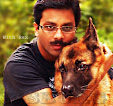Your Mistakes in Dog Bite Incidences
Dogs have always been the most precious friends of humans. A study has shown that world’s top 10 countries having most pet dog population is cumulatively over 172509000 dogs. At the same time another study on dog bite carried out by Centers for Disease Control and Prevention (CDC) has shown that around 4.7 million people are bitten by dogs each year, followed by an incredible volume of 800,000 injuries that demand serious medical attention. Another stat offered by the Insurance Information Institute (I.I.I.), shows that dog bite claims that cost the insurance industry during 2005 was $317 million, while this number has risen to $365.2 million during 2007, which is one of the most important data that proves that dog bite cases are on a rapid rise. Many insurers have increased the premium values and in some cases they have even excluded few canine breeds like Rottweilers, German Shepherds and Pit Bull Terriers from insurance coverage.
Before you blame specific dog breeds, it is important to understand that owners are actually liable for their dogs’ unnatural behavior. It is important to understand the owners’ mistakes related to the dog bite incidences. Evaluation is very important. Most dog bite problems can be resolved by the way of responsible ownership and carrying out safe behavior with dogs.
1st Mistake – Not Determining a Dog’s Propensity: This is a big mistake that most owners and handlers commit. It is important to determine the dog’s behavioral pattern and the owner can be the best person to do this. It is important to evaluate whether a dog is vicious by nature and if he is, then it is important to evaluate the reasons behind his aggressive behavior. Problems should be resolved at the root.
2nd Mistake – Not Socializing a Dog: Dog is a social animal. He should carry himself in a friendly way until he is being threatened. It is important to socialize a dog to different situations, sounds and humans. Lack of socialization can be a reason of your dog becoming fearful, which consequently leads to developing biting tendencies.
3rd Mistake – Differentiation: Remember any breed – Chihuahua to Irish Wolf Hound any dog can bite. documentation about this was found in county and city bite statistics as and national research studies. It is unwise to make a list of breeds that bites. As soon as you develop a develop a mindset against a specific breed, often times you develop phobia in the particular breed(s), and you start behaving weird when you are around those breed of dogs. This can enhance the chance of you being bitten. It is hence suggested to behave normally around the dogs (irrespective of breed).
4th Mistake – Breed Specific Law: The Dangerous Dog Act - 1991 and Breed Specific Legislation (BSL) in certain places in the UK and the US, have been enforced keeping in mind the specific breed and their character traits. Rather it should have been developed based on the owners’ and handlers’ treatment with the dog. BSL should directly target people who deliberately want to make their dogs aggressive and develop biting tendencies through unethical training. BSL somehow is helping develop a fear in people’s mind towards certain breed. This fear makes them behave abnormally and the 3rd Mistake repeats its cycle.
A bit more about these legal acts:
5th Mistake – Unethical Breeding: Wrong breeding tactics is the reason for developing biting tendencies in dogs. Unscientific breeding (outcrossing, line breeding and in-breeding) often times delivers shy progenitors. Backyard breeding should be banned. Act of breeding animals should be carried keeping the Science of Breeding in mind. Genes has got its role to play. Here's the Role of Gene in The Dog's Character.
6th Mistake – Not Understanding a Breed: It is important to understand the specific traits of the breed you are planning to own. Owners should understand whether a breed is for him/her. Not all breeds are or all. If you are an apartment dweller, a GSD or a Dane may not be the right choice for you. Limited movement and exercise can make make certain breed – German Shepherd dog frustrated and eventually develops aggressiveness.
Over all these... Do not commit the same mistakes as I did.
Do not keep your dog confined. Exercise is of utmost importance. Understanding your dog is a science and art both and the significance of it cannot be denied. At the same time it is important to understand the power of a large breed like Great Dane, Cane Corso, Bordeux, Rottweilers, German Shepherds, Pitt Bull, Mastiffs etc. These dogs are highly powerful and psychological imbalance can be jeopardize both you and your dogs. Undesirable behaviors are programmed in a breed, if not bred improperly. Rather bad behaviors like over aggression, shyness and biting tendencies are exposed when people who love the breed do not understand the breed properly. This is the biggest mistake that most dog lovers commit.
The Dangerous Dogs Act 1991 is an Act of the Parliament of the UK that has been there there for around 3 decades, and has been aimed at prohibiting certain canine breeds that have been presumed as dangerously vicious.
Similar law... Breed-specific Legislation (BSL) or Breed-discriminatory Legislation (BDL) was enacted by the US govt. And is aimed at banning some specific breeds of dogs from possession/adoption.
Such laws have been framed to save the society from dog attacks. These laws are completely based on the presumption that particular dog breeds are dangerous or such legal framework have been supported by data related to dog attacks vs types of breeds involved or accused.
Such legal set up needs to be withdrawn and made ineffective because these laws do not seem to be addressing the actually problem. The governments of both countries should keep an eye on the way the breeders are deploying their unscientific, selective breeding programs to genetically infuse aggression in certain dogs. Many people are proud of owning these breeds just because of their aggressive nature; not because they love canines. We consider such breeding as irresponsible and unscientific breeding, because such breeding programs are creating psychologically unstable specimens. That's not the breed's fault. That's the breeders' fault altogether! Hence, BSL/BDL and Dangerous Dog Act is a baseless legal setup that is giving a breed a bad name for no fault of the breed.
5th Mistake – Unethical Breeding: Wrong breeding tactics is the reason for developing biting tendencies in dogs. Unscientific breeding (outcrossing, line breeding and in-breeding) often times delivers shy progenitors. Backyard breeding should be banned. Act of breeding animals should be carried keeping the Science of Breeding in mind. Genes has got its role to play. Here's the Role of Gene in The Dog's Character.
6th Mistake – Not Understanding a Breed: It is important to understand the specific traits of the breed you are planning to own. Owners should understand whether a breed is for him/her. Not all breeds are or all. If you are an apartment dweller, a GSD or a Dane may not be the right choice for you. Limited movement and exercise can make make certain breed – German Shepherd dog frustrated and eventually develops aggressiveness.
Over all these... Do not commit the same mistakes as I did.
Do not keep your dog confined. Exercise is of utmost importance. Understanding your dog is a science and art both and the significance of it cannot be denied. At the same time it is important to understand the power of a large breed like Great Dane, Cane Corso, Bordeux, Rottweilers, German Shepherds, Pitt Bull, Mastiffs etc. These dogs are highly powerful and psychological imbalance can be jeopardize both you and your dogs. Undesirable behaviors are programmed in a breed, if not bred improperly. Rather bad behaviors like over aggression, shyness and biting tendencies are exposed when people who love the breed do not understand the breed properly. This is the biggest mistake that most dog lovers commit.


























0 comments:
Post a Comment